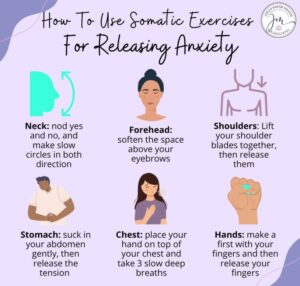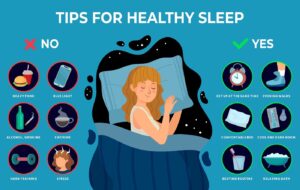Understanding the Link Between Emotional Health and Physical Health
The Impact of Stress on Physical Health
Stress is a common experience for many individuals, and its impact on physical health should not be overlooked. When a person experiences chronic stress, it can have a detrimental effect on various aspects of their well-being. One of the most significant consequences of stress is its impact on the immune system. The body’s natural defense mechanism can become compromised when under prolonged stress, making individuals more susceptible to illness and disease.
Furthermore, the cardiovascular system can also suffer as a result of chronic stress. Elevated levels of stress hormones, such as cortisol, can lead to an increase in blood pressure and heart rate, putting a strain on the heart and potentially leading to hypertension and other cardiovascular problems.
Aside from these physiological effects, stress can also manifest in muscle tension and chronic pain. When the body is in a constant state of tension, it can lead to discomfort, soreness, and even more severe conditions such as tension headaches or fibromyalgia. The impact of stress on physical health is clear, making it essential for individuals to address and manage their stress levels in order to maintain overall well-being.
In conclusion, the impact of stress on physical health is significant, affecting the immune system, cardiovascular system, and musculoskeletal health. It is crucial for individuals to recognize the signs of chronic stress and take proactive measures to manage their stress levels in order to protect their physical health and well-being.
How Anxiety and Depression Affect the Body
Anxiety and depression not only take a toll on mental health, but can also have significant impacts on physical well-being.
Physiologically, anxiety can lead to increased heart rate, muscle tension, and shallow breathing, while depression can result in fatigue, changes in appetite, and disrupted sleep patterns.
Over time, these symptoms can contribute to the development of chronic conditions such as cardiovascular disease, digestive issues, and weakened immune function.
It is crucial to address anxiety and depression not only for mental health reasons, but also for the maintenance of overall physical health.

The Connection Between Emotional Trauma and Somatic Symptoms
Emotional trauma can have a profound impact on our physical well-being. When we experience a traumatic event, the body’s stress response is activated, leading to a release of stress hormones such as cortisol and adrenaline. This prolonged stress response can manifest in somatic symptoms, such as headaches, muscle tension, and gastrointestinal issues.
Furthermore, emotional trauma can also weaken the immune system, making individuals more susceptible to illness and disease. The mind-body connection is evident in the way our emotional state can directly influence our physical health. It is crucial to address emotional trauma in order to alleviate somatic symptoms and improve overall well-being.
Therapeutic approaches such as cognitive behavioral therapy, mindfulness, and somatic experiencing can help individuals process and release emotional trauma, leading to a reduction in somatic symptoms. Additionally, practices like yoga, meditation, and deep breathing exercises can help regulate the body’s stress response and promote relaxation, contributing to physical and emotional health.
It’s important for individuals to seek support and professional help to address emotional trauma and its impact on somatic symptoms. By recognizing the connection between emotional trauma and somatic symptoms, individuals can take proactive steps to prioritize their emotional health and improve their physical health.
The Role of Positive Emotions in Boosting Immunity
Positive emotions play a crucial role in boosting the immune system. When we experience feelings of joy, gratitude, love, and contentment, our bodies release hormones and neurotransmitters that support our physical health. These emotions can also decrease the production of cytokines, which are small proteins that are involved in cell signaling and can cause inflammation when present in high levels.
Research has shown that individuals who regularly experience positive emotions tend to have stronger immune systems and are less susceptible to illnesses. These emotions can help in reducing stress, which is known to weaken the immune system. Moreover, positive emotions can increase the production of antibodies, which are essential for fighting off infections and diseases.
The mind and body are interconnected, and our emotional well-being has a direct impact on our physical health. By cultivating positive emotions, individuals can improve their overall well-being and boost their immune system’s ability to protect them from various health issues.
In conclusion, the role of positive emotions in boosting immunity cannot be understated. Taking steps to foster positive emotions, such as practicing gratitude, engaging in activities that bring joy, and maintaining meaningful connections with others, can have a significant impact on our immune system and overall health.
How Chronic Loneliness Can Harm Your Physical Well-being
Chronic loneliness can have serious negative effects on your physical health. When you are lonely, you may experience increased levels of stress, which can lead to a weakened immune system. This makes you more susceptible to illnesses and infections, ultimately impacting your overall well-being.
Additionally, chronic loneliness can lead to unhealthy behaviors such as overeating, poor sleep habits, and lack of exercise. These behaviors can contribute to weight gain, cardiovascular issues, and other physical health problems.
Moreover, loneliness can affect your mental health as well. It can lead to feelings of hopelessness, depression, and anxiety, further exacerbating the negative impact on your physical well-being.
It’s important to recognize the detrimental effects of chronic loneliness on both mental and physical health, and seek support and connection to combat these issues.
Exploring the Mind-Body Connection in Chronic Pain
Chronic pain is a complex and pervasive issue that affects millions of people worldwide. It is often a result of a combination of physical, emotional, and psychological factors, and the mind-body connection plays a significant role in how chronic pain is experienced and managed.
One of the key aspects of the mind-body connection in chronic pain is the influence of stress and anxiety on pain perception. When an individual is under chronic stress, the body’s natural response is to release stress hormones, such as cortisol and adrenaline. These hormones can not only exacerbate existing pain, but they can also increase sensitivity to pain, making it feel more intense and intolerable.
Additionally, the emotional impact of chronic pain can lead to changes in brain chemistry and neural pathways, further amplifying the perception of pain. Negative emotions such as depression, anger, and hopelessness can contribute to a vicious cycle of pain and distress, leading to decreased quality of life and functional impairment.
On the other hand, exploring positive emotions and implementing relaxation techniques can have a profound impact on managing chronic pain. By engaging in activities that promote relaxation, such as meditation, deep breathing, and mindfulness, individuals can counteract the stress response and reduce the intensity of their pain. Furthermore, cultivating a positive mindset and finding sources of joy and fulfillment can lead to improved emotional health, which in turn can positively influence the experience of chronic pain.

The Influence of Emotional Health on Sleep Quality
Emotional health plays a crucial role in determining the quality of sleep that an individual gets. When a person is experiencing stress, anxiety, or depression, it can significantly impact their ability to have a restful night’s sleep. The constant worry, racing thoughts, and feelings of unease can make it difficult to relax and fall asleep, leading to insomnia or disrupted sleep patterns.
Furthermore, emotional trauma can also have a profound impact on sleep quality. Individuals who have experienced traumatic events may struggle with nightmares or flashbacks that inhibit their ability to attain deep, restorative sleep. The emotional toll of trauma can create a heightened state of alertness and hyper-vigilance that makes it hard to relax and feel safe enough to drift off into a peaceful slumber.
Additonally, chronic feelings of loneliness can harm an individual’s physical well-being, including their sleep quality. Persistent feelings of isolation and disconnection from others can lead to social jetlag where a person’s body’s internal clock is disrupted, leading to sleep disturbances and a lack of restorative sleep.
For optimal sleep quality, it is imperative to address and prioritize emotional well-being. This may involve seeking professional help, practicing relaxation techniques, engaging in regular physical activity, and cultivating a supportive social network. By tending to our emotional health, we can create a positive impact on our sleep quality and overall well-being.
You can also read our article about Mastering Stress












One thought on “Understanding the Link Between Emotional Health and Physical Health”